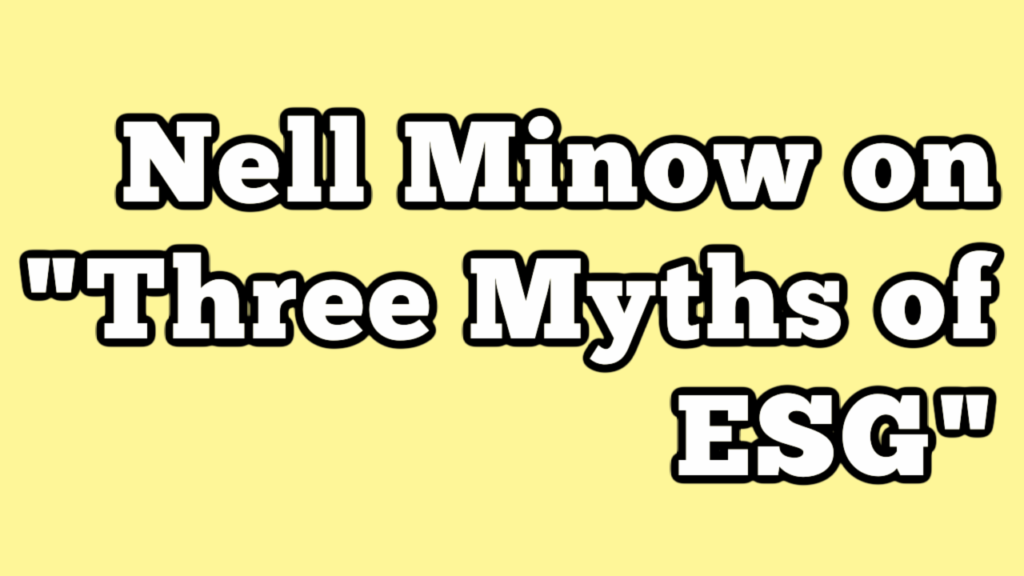Nell Minow on “Three Myths About ESG”

Here’s an excerpt from this blog penned by Nell Minow, ValueEdge Advisor’s Vice Chair – these are her three ESG myths:
1. ESG is new. In the collection of The British Museum is a blue glass jar dating back to the early 19th century. The label identifies the company and the product: East India sugar. And then, in bigger letters, it has an ESG disclosure: “not made by SLAVES.” The East India Company distinguished itself from its competition in the West Indies in response to the world’s first grass-roots political movement and consumer boycott. This led to the abolition of slavery in the United Kingdom more than 30 years before it took a war to stop it in the United States.
ESG is sometimes similarly dismissed as a fad. While fads are very popular in finance and investing, ESG is unlikely to disappear. It will continue to be refined, but it will not disappear. For example, the largest institutional investor in the U.S. is BlackRock, which has announced that 100 percent of its approximately 5,600 active and advisory BlackRock strategies are ESG integrated—covering U.S. $2.7 trillion in assets. Reflecting the demand, BlackRock introduced 93 new sustainable solutions in 2020, helping clients allocate U.S. $39 billion to sustainable investment strategies, which helped increase sustainable assets by 41 percent from December 31, 2019.
2. ESG is monolithic. It is critical to remember that ESG encompasses three enormous categories: environment, governance, and a catch-all category referred to as “social.” Each is a moving target with constantly evolving ideas about what information is relevant and reliable and each has to be evaluated separately. “Social” is the wild card in the group. Rising on the list in recent years are #MeToo and #BlackLivesMatter concerns.
I predict that there will be increasing attention on political contributions and lobbying expenditures. This scrutiny has been catalyzed by reports from Judd Legum and others about contributions companies have made contrary to their public commitments not to donate to elected officials who supported the January 6 insurrection or who get poor ratings from women’s and racial equity groups.
3. ESG is “non-pecuniary”—adjacent to or conflicting with financial goals. This was the explicit underlying assumption in the now-suspended ESG rule pushed through the Department of Labor in the last weeks of the Trump administration, directed at pension fiduciaries. The suspension of the rule as the Biden administration examines the issues is based on two key facts.
First, the Department already has not just the enforcement authority but the obligation to use it if a pension fiduciary makes an investment decision for any reason other than “the exclusive benefit of plan participants.” Second, the proponents of the anti-ESG rule failed to come up with a single example of any investment made by any fiduciary for other than purely financial reasons. There is a lot still to be determined about ESG and some arguments to be had over long-and short-term calculations, but it is always financial.
